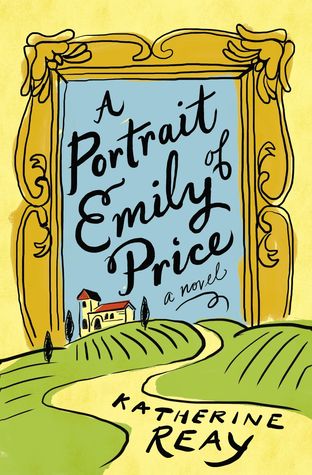New York Times bestselling author
Francine Rivers has published numerous novels—all bestsellers—and she has
continued to win both industry acclaim and reader loyalty around the globe. Her
Christian novels have been awarded or nominated for numerous honors and in
1997, after winning her third RITA Award for Inspirational Fiction, Francine
was inducted into the Romance Writers of America Hall of Fame. Francine’s
novels have been translated into over 40 different languages, and she enjoys
bestseller status in many foreign countries.
1. What motivated you to venture into your first nonfiction title?
I love reading
nonfiction but had never tackled it. When I shared with someone in South Africa
about doing “earth psalms” about the way God speaks to me through His creation,
someone mentioned turning those essays into a devotional. I love devotionals
and read a new one every year, so the prospect of writing one was exciting.
Tyndale partnered me with Karin Stock Buursma and we worked together as a team.
I thoroughly enjoyed everything about the project.
2. Was it hard to share personal stories about how God has worked in your
life without the safety net of fictionalization?
Sharing personal
stories about how God works in my life is a pleasure, and I love hearing how
God has worked in other people’s lives, too. It’s the life experiences and hope
we share with one another that brings God even closer. It shows how personally
involved the Lord is in His children’s lives.
3. Explain the title. How did you come up with the idea of Earth Psalms?
A psalm is a song, and
the earth and everything on it, in it, above it, and beyond it is God’s
creation. Everything God created sings praise to Him, and I believe also
teaches us many lessons about our Creator as well. It’s exciting to look at
things we might have taken for granted and see what they teach us about the
Lord. We are never to worship any created thing or even creation itself. We are
to worship the Creator, Jesus Christ, the Word that created it all.
4. What will readers find inside the pages of Earth Psalms?
Readers will find an
earth psalm (essay) about something God has created and a lesson God has taught
me through it. There are questions for readers to ponder or use for journaling:
Reflect, Apply, Connect with God. There are also some additional facts,
Scripture, and hymns, as well as beautiful pictures. The earth psalm essay was
my part. The enriching questions and details are Karin’s, and the beautiful
artwork was put together by Jennifer Ghionzoli at Tyndale.
5. What was it like working with a collaborator for the first time?
Working with Karin
Stock Buursma was a pleasure. We talked about any editing that needed to be
done, the questions and elements of the devotional. I hope to work with her
again.
6. What is your hope for this book?
I hope readers will
look at ordinary things (and some not so ordinary) in a new way and search for
ways God speaks to us through His creation. Just as an artist reveals himself
through his art, God has given us evidence of Himself in everything He’s
created. We are to be good stewards of what God has given us. Nature is to be
enjoyed and appreciated. It all points to Him.
7. Why do you think Christians need to hear this message?
We live in a busy
world, and even Christians can get in such a rush they forget to “stop and
smell the roses.” Imagine that wonderful scent reminding you that the prayers
of believers are like the scent of incense to God. I hope readers will slow
down, look around, discover the beauty, and then praise God for all the many
blessings He has given us. And then, start looking for ways God speaks to each
individual through His creation. The essays I’ve written are lessons I’ve
learned, but God has things to point out to each individual that speak to their
personal lives.
8. How do you hope your message will resonate with your readers?
I know many other
people who love the natural world and see how it is evidence of God as Creator
of all. I hope this devotional will encourage them to rejoice and look for and
share how God speaks to them. There are so many mysteries that can’t be
explained by evolution, but can easily be explained by God. We have the inside
story of how the earth was made, and our place in it.
9. What first sparked your love of the natural world and when did you begin
to connect its role to your faith walk?
Both of my parents
loved nature. My dad loved to fish. So whenever we traveled, we camped by a
stream, lake, or the ocean. While Dad and my brother fished, Mom and I wandered
the shore, looking at rocks and flowers, keeping an eye out for animals. We
also lived a couple miles outside a small town, and our entertainment was
hiking and exploring. My parents were Christians, active in the church, so I
grew up knowing God created the world and everything in, on, and above it. My
views temporarily shifted in high school and college, where evolution was (and
still is) being promoted as “the answer” to how things came to be. But the
closer you look at that theory, the more illogical it becomes, the more holes
you find in the thinking. Looking for evidence of God in creation became
important because I wanted to pass along that mind-set to my children and
grandchildren.
10. How can exploring nature and God’s creation help to expand our love for
Him and result in a closer relationship with our Creator?
I start with the
thought: God created this thing, and there is a purpose in it and for it. What
does this unique creation say about God? What lesson might He be trying to teach
me through this plant or animal? The world is full of evidence and clues, and
they all point to Him. It’s a treasure hunt! You have to spend more time with
the Lord to find answers. As we ask our questions and seek answers from Him, He
gives us the ability to find what He wants us to know. We are blessed that God
wants us to have a personal, intimate relationship with Him and has made that
possible through His Son, Jesus.
11. What does nature reveal about our creative and generous God? How might
these lessons and observations shape our faith?
Searching for earth
psalms has encouraged my faith in the Lord. God has been generous in His
creation. He’s given us vast variety and diversity. He’s given us color and
shape and texture. We haven’t even begun to fully explore the wonder of His
creation. It’s only been in recent history that we’ve “discovered” black holes
and nebulae and dwarf stars. We haven’t even seen all the things on the ocean
floor. Everything was made by God, an endless wonderland of things to study and
explore, all to the glory of God, who made it all.
12. How have you seen God’s character and faithfulness demonstrated in
nature?
The seasons play out
the Gospel every year. He gives us the air we need to breathe, the rain to grow
the food we eat, the time and eternity to know Him. The one constant is the
Lord, who existed before creation and will always be.
13. God’s glory is manifested in nature all around us. How can we tune into
His glorious message? What do you do to discover Earth Psalm moments?
We tune in by praying
and reading His Word and asking Him to open our eyes, ears, and hearts to what
He has for us. Then we look and listen with hearts fixed on Him. When we
discover something that has a lesson for us, we give thanks to God for that
lesson. And then we share it with others.
14. What have your observations about nature taught you about God?
My observations about
nature have taught me how much God loves me and every person on the planet. He
could have created a simple, functional, plain planet for us to live on.
Instead, He created one filled with beautiful, interesting things from the
bottom of the oceans to the mountaintops and beyond. It makes my heart ache
sometimes that my love is so limited by my human nature. He’s given us so much,
gifts beyond counting. Enjoying nature makes me love and praise Him all the
more.
15. What lessons have been most surprising as you dig into the world God
created?
God even teaches us
valuable lessons through beetles and worms!
16. You’ve traveled a lot. Do you have favorite places you love to explore
over and over again?
My own backyard.
17. What’s your favorite destination, and do you have a place you’ve always
wanted to go?
After Rick’s diagnosis
of Parkinson’s, we decided to travel as much as possible while we are
physically able, and have done so extensively over the last ten years. We still
have a list of places we’d like to visit, many of which are right here in
California. The favorite destination of any trip always comes at the end—home.
And the one place I’ve always wanted to go—and stay—is heaven.

















